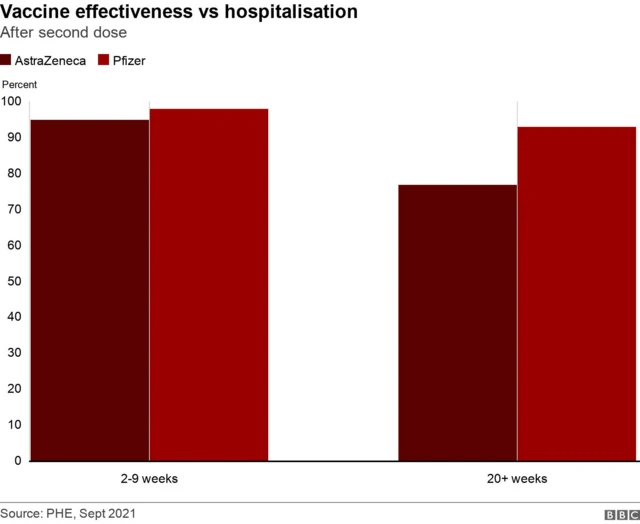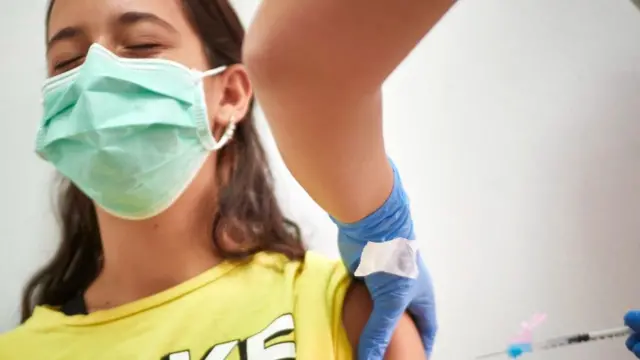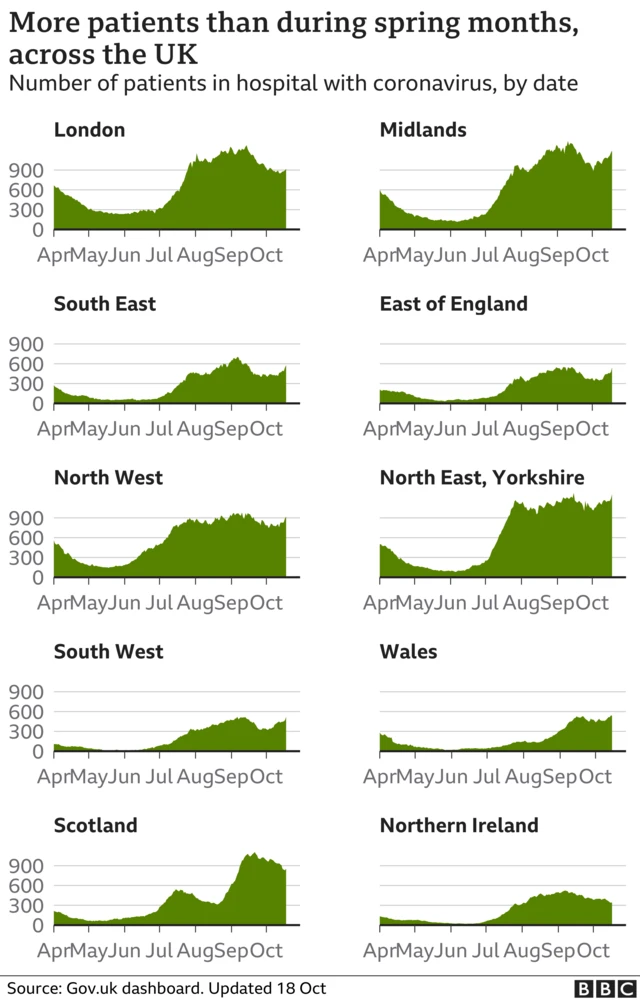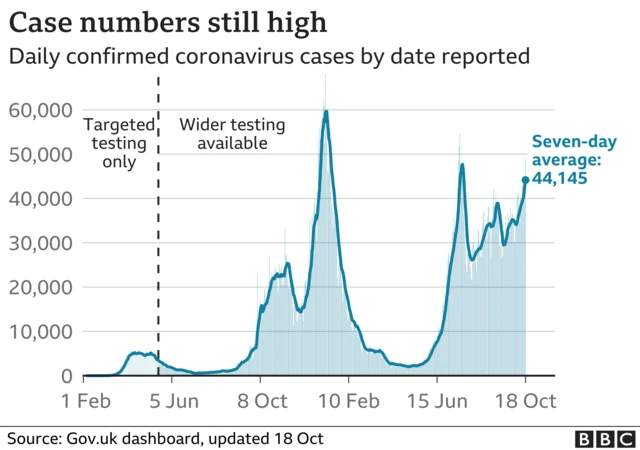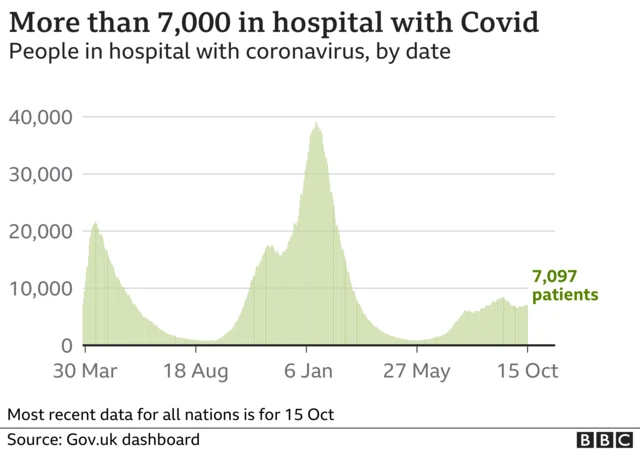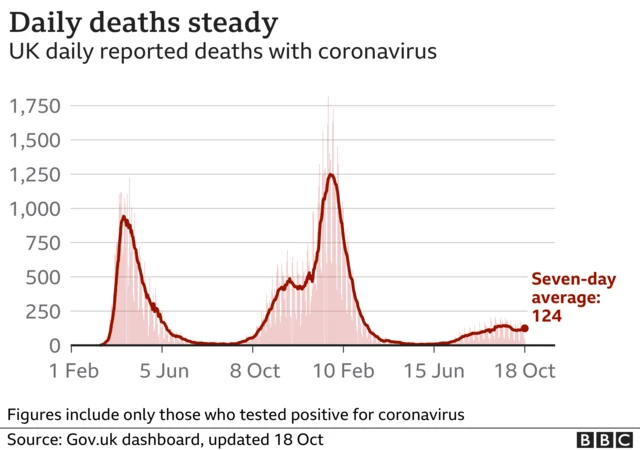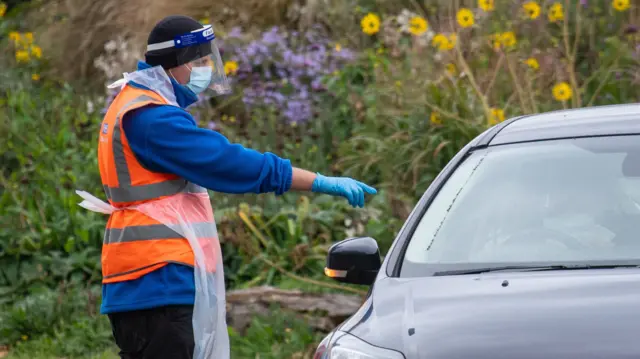Covid deaths down 15% in the week to 8 October - ONSpublished at 09:50 BST 19 October 2021Breaking
A total of 666 deaths registered in England and Wales in the week ending 8 October mentioned Covid-19 on the death certificate, according to the Office for National Statistics (ONS).
That figure is down 15% on the previous week.
It is the lowest number of deaths since the week to 3 September.
Those 666 deaths account for 6.2% of all deaths registered in England and Wales in the week to 8 October.
